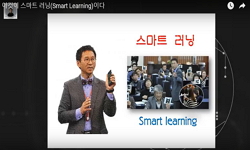The purpose of this study was to compare and analyze the smart learning teaching efficacy of special education teachers for practicing smart education for students with disabilities according to their affiliation and school courses. The study included...
http://chineseinput.net/에서 pinyin(병음)방식으로 중국어를 변환할 수 있습니다.
변환된 중국어를 복사하여 사용하시면 됩니다.
- 中文 을 입력하시려면 zhongwen을 입력하시고 space를누르시면됩니다.
- 北京 을 입력하시려면 beijing을 입력하시고 space를 누르시면 됩니다.

장애학생 스마트교육 실행을 위한 특수교사의 스마트러닝 교수효능감 비교 연구 = A Comparative Study of Special Education Teachers' Smart Learning Teaching Efficacy between School Courses and Affiliation for Practicing Smart Education for Students with Disabilities
한글로보기https://www.riss.kr/link?id=A108636513
- 저자
- 발행기관
- 학술지명
- 권호사항
-
발행연도
2023
-
작성언어
-
- 주제어
-
KDC
379
-
등재정보
KCI등재
-
자료형태
학술저널
-
수록면
39-64(26쪽)
- DOI식별코드
- 제공처
-
0
상세조회 -
0
다운로드
부가정보
다국어 초록 (Multilingual Abstract)
The purpose of this study was to compare and analyze the smart learning teaching efficacy of special education teachers for practicing smart education for students with disabilities according to their affiliation and school courses. The study included a total of 101 participants, consisting of 55 special education teachers from special classes and 46 special education teachers from special schools, and 74 elementary school and 27 middle school teachers according to their school curriculum. The results showed that special education teachers had lower general teaching efficacy than their personal smart learning teaching efficacy. In terms of affiliation, special education teachers from special schools showed slightly higher smart learning teaching efficacy than those from special classes. In terms of school curriculum, middle school special education teachers showed slightly higher smart learning teaching efficacy than elementary school special education teachers. Based on these results, the study discussed the need to develop smart education support measures for special education teachers according to their affiliation and school courses to practice smart education for students with disabilities, as well as to improve the special education environment and educational process for practicing smart education.
동일학술지(권/호) 다른 논문
-
특수학교 고교학점제 적용을 위한 학생 선택형 교육과정 편성 및 운영 방안 탐색
- 한국특수교육교과교육학회
- 손지영(Ji young Son)
- 2023
- KCI등재
-
2022 특수교육 기본 교육과정 진로와 직업 교과의 개정 방향 탐색
- 한국특수교육교과교육학회
- 권수정( Su-jeong Kwon)
- 2023
- KCI등재
-
고교학점제 도입에 관한 경기도 발달장애 특수학교 중등 교사의 인식
- 한국특수교육교과교육학회
- 정승미(Seung Mi Jung)
- 2023
- KCI등재
-
장애학생 의사소통에 관한 초임 특수교사의 경험과 지원 요구에 관한 질적 연구
- 한국특수교육교과교육학회
- 김정연( Jeong youn Kim)
- 2023
- KCI등재




 KCI
KCI 스콜라
스콜라





